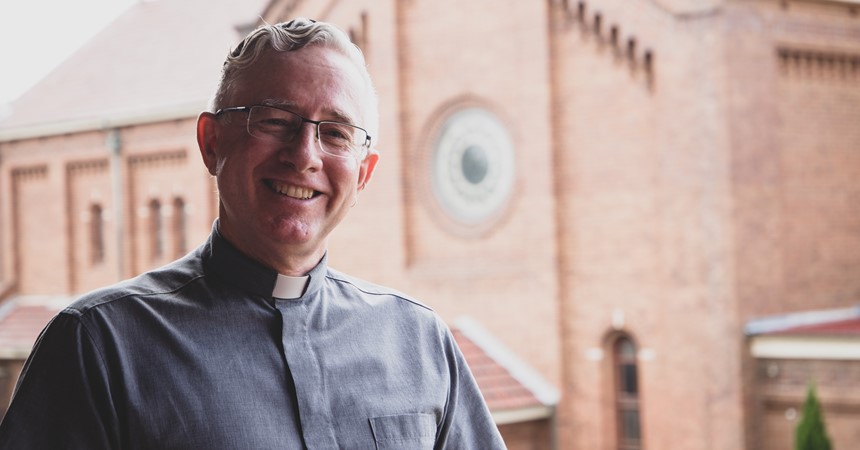The ribbon teaches there are no losers and so no real winners, when loss comes for the first time it comes as a shock.
The goldfish, however, teaches we can love and care, suffer a loss and be okay. To lose a race or to lose a goldfish assists us in building the kaleidoscope of life’s important lessons for survival - namely that the human heart is more resilient than we feel or believe possible.
I take great heart from the relationship of Simon of Cyrene with Jesus the Nazarene. One generous enough to help Jesus carry his cross and the other generous enough to let him. It is a great life lesson really. No one is called to carry their ‘cross’ alone, and whilst we feel that we do or need to it is not supposed to be our reality.
We’ve witnessed an extraordinary number of tragic events in recent months. It is hard to imagine how anyone could possibly bounce back from the experience of being flooded or bombed or witness to a massacre and yet as we have experienced in our own story, they will.
I have felt privileged and humbled listening to incredible stories of survival and rescue. My hat goes off in reverent tribute to the bravery of those who risk everything to save another. How amazing it is to witness people being pulled alive from rubble, rescued from roof tops and carried to safety.
Stories of rescuers not giving in, in their desperate search for survivors. Many reflect humbly that ‘anyone’ would do the same. This generosity to help with the ‘cross’ is inspiring.
Many survivors speak of overcoming adversity in often terrible circumstances. What is important about this kind of resilience is that we learn it. Resilience has context amongst family, friends, and community. We are rarely truly resilient on our own or in isolation. The goldfish helps us learn important life skills as we lovingly place them in shoeboxes.
There is a generosity that offers help and a generosity that accepts it.
In the face of tragedy, we rarely feel resilient. We often don’t feel strong. Overwhelmed, lost, distressed, powerless are phrases used by those in the tragedy and those who witness it. We naturally look for help from authorities, neighbours, friends. They are ‘Simon of Cyrene’.
We don’t need to do much to be a Simon of Cyrene. It’s the hug when there are no words, the card of encouragement, the donation, the phone call, the cooked meal at the door, the food hamper, the prayer, the gathering together in solidarity, communal celebrations and fundraising, the outpouring of shared grief, the flowers, notes and toys left at the site, the letter to authorities calling for change. It’s an acceptance and sign that we are not alone, that we are in this together.
The best signs are the ones where we don’t look for thanks or gratitude, our help is enough.
Being resilient is not easy. Small steps are important. The first step, often the biggest, is the decision to get out of bed and open the curtains. It can also be helpful to remember the challenges we have overcome in the past by pulling together. Jesus wasn’t called to carry his cross alone, neither are we.



























































































